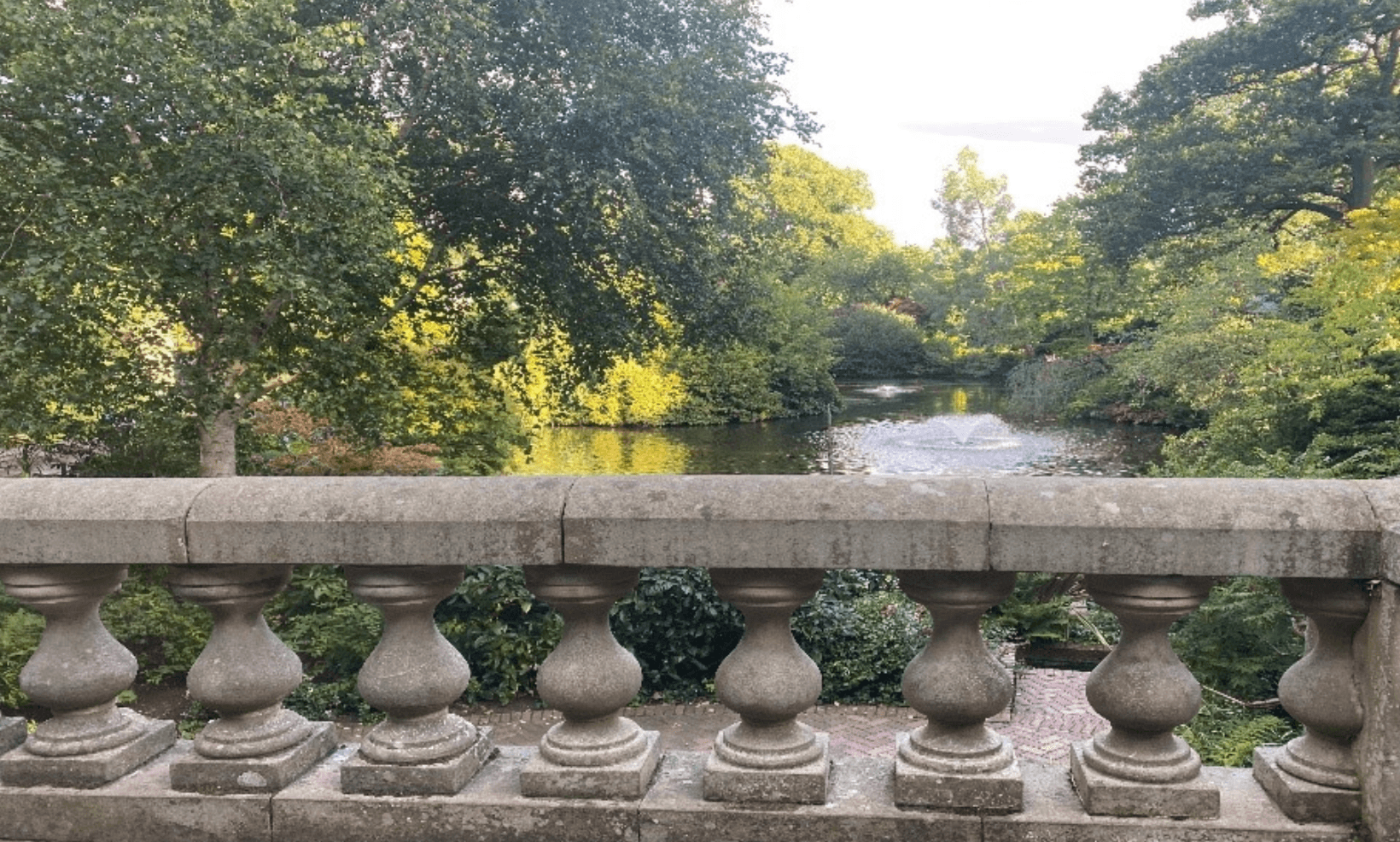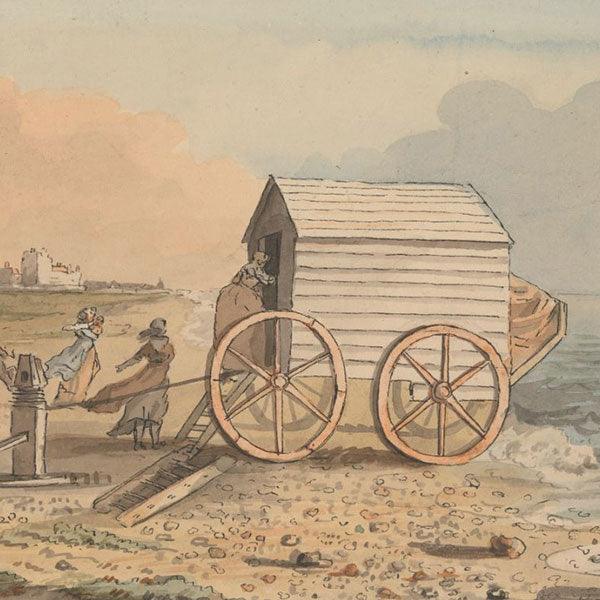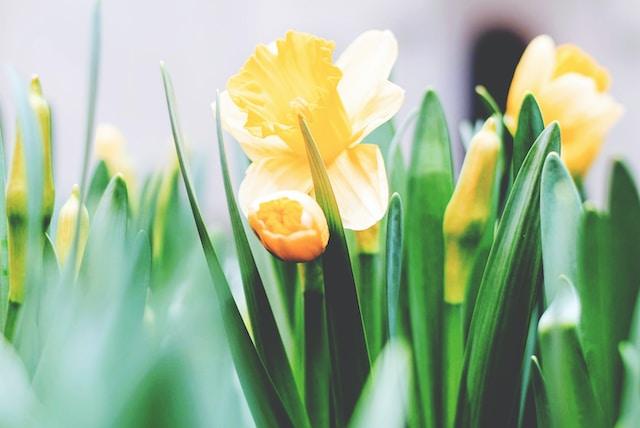
The Rise of The Regency

With Bridgerton and ITV's adaptation of Austen’s unfinished last novel Sanditon, creating more waves than the fictional town, it seems that Regency is coming out as the new belle of the ball. During lockdown, when Bridgerton dropped on Netflix, it generated more talk than Lady Whistledown as the twitterati were all a flap. In 2019, Sanditon was scrapped by ITV, only to be revived after a year of lockdown saw viewers flock to Bridgerton’s ball. The rise of the Regency, it seems, has never been more apparent. However, our revelling in Regency has not been restricted to bonnet binging, it seems our spare time has also taken us back in time.
It seems we are not content with revelling in Regency romance, we are also emulating their pastimes. A recent survey of a 1,000 woman revealed an increase in many traditional Regency pastimes. During lockdown, our social activities altered, there was an increase in reading, gardening, painting, sketching, Knitting, crochet, and embroidery. It seems we are all looking back to find our way forward. The reason for this? Well, there are many similarities between the lockdown situation we endured and the Regency period, particularly for women. With the morning commute removed, and after office drinks crossed off the diary, we were left with more hours in the day. The removal of the water cooler catchups meant the combination of more time to mourn the loss of our social interaction. Like our Regency ancestor’s, women had more time to think, ponder and dream of what might have been.

During the Regency period, women were left at home with time to reflect. One release from this confinement was walking. In Pride and Prejudice Elizabeth Bennet is often described as walking or running:
‘I do not wish to avoid the walk. The distance is nothing when one has a motive; only three miles’
During the lockdown, with gyms closed, society had to, once again, turn to the outdoors to keep active. Walking became the new spin class. As restrictions increased, indoor dining in pubs and restaurants ceased, this meant to meet our nearest and dearest, we had to venture outdoors. This introduced 21st century society to a Regency problem, a reliance on something you cannot timetable - the weather. Twenty-first century society had to experience the waiting game, enduring the fact that you were no longer in control of your exercise regime or, crucially when you were isolated, your social life. In Sense and Sensibility, Marianne, desperate to socialise, frequently takes to the outdoors ‘unable any longer to bear the confinement which the settled rain of the two preceding days had occasioned.’ Admittedly, we were able to turn to our weather app rather than relying on whether Mrs. Bennet thinks it looks like a good day for a promenade. However, as during lockdowns we refreshed the forecast as often as Marianne stared out of the window, it is easy to see why we now feel an affinity for our Regency ancestors.
Georgian society had a greater fear than the weather to overcome however. Throughout the period wars raged not only overseas, but conflict also raged across the country, as the threat of Jacobite rebellion was constant. In 1803 British society was under a threat of invasion from the French. A rumour circulated that the 90,000-strong army were about to invade overnight. Although the British navy controlled the channel, the flaming beacons could be seen from British shores. In March 1814 Britain invaded France, this brought anxiety to Regency Britain as danger was never far away. Occupying your mind and keeping busy instead of wondering if your loved ones were safe was imperative. During the last two years, lockdown evoked similar emotions. The threat of impending danger and concern for those we love, meant a need to fill the quiet hours at home, and to stop fearful anxieties arising, was not just a hobby, but a necessary coping strategy. Woman expressed that these hobbies not only helped to occupy spare time in lockdown, but helped to alleviate anxiety.
With that in mind, it is a small wonder that homespun hobbies, to calm and sooth the mind with creative endeavour, came to be as important to us as these activities once were to our Regency counterparts. The social media brag of how many creative endeavours you learned in lockdown became a prevalent theme in the last two years. Who didn’t hear talk of banana bread success and languages learnt? Similarly, our Regency counterparts felt a pressure to display the artistic crafts they had acquired. Austen summarises this in Pride and Prejudice, through the character of Miss Bingley
‘A woman must have a thorough knowledge of music […] drawing […] and the modern languages […] something in her air and manner of walking […] and to all this she must add yet add something more substantial, in the improvement of her mind by extensive reading.’
A favourite escape from confinement was artistic escape, a place to roam whatever the weather, was idyllic and sought after. During, and after, lockdown Bob Ross’s art tutorials were repeated twice nightly on BBC4. YouTube began, and continues, to show nightly live paint-a-longs. It seems, like our Regency ancestors, we find escape in artistic endeavours. Are we now the new Emma Woodhouse?
‘She […] had made more progress both in drawing and music. She played and sang; -and drew in almost every style;’
During lockdown there was a 17% increase in learning a musical instrument, again, this is a similarity we share with our Regency friends. The chance to exhibit, or the current equivalent, to post on your social media, to showcase your talents and display how industrious you have been, is as tempting to us as an empty piano stool was to Mary Bennet.
Needlework and knitting were a traditional staple for any Regency woman. In Mansfield Park this skill is highlighted by Austen
‘She felt very much obliged to her for her present kindness; and when, from taking notice of her work, and wishing she could work as well, and begging for the pattern.’
Lockdown had us following the same thread as we emulated another love of our Regency sisters. In 2020 and 2021 alone this pastime rose in popularity by 15%. In Regency times, learning a language was used to signal to society that you were a cultured woman of education. Equally, in our current society, the boast of learning a language in lockdown was bound to get you talking. A survey revealed 20% of woman expressed that learning a language was the number one skill that they wished to acquire in lockdown.
The combination of an increase in spare time, coupled with anxiety during the pandemic, and the subsequent loss of social interaction, now means that any small event becomes more prevalent. As with our Regency counterparts, no social event is taken for granted, every upcoming interaction is eagerly anticipated. The lack of physical contact means that once again, we can relate to the thrill of a touch of a hand across a dance floor. We all looked on in wonder as the first test events of large crowds took place, we looked on in awe as an audience stood shoulder to shoulder to listen to music together, as we all hoped for an encore soon.
Therefore, we identify as never before with the Regency, we feel their excitement, but also their apprehension, at our ‘coming out’ into society. Having faced the social restrictions and distancing that lockdown inflicted, many are commenting on social media at their surprise at their own anxiety of mixing in proximity with others. This newfound reserve, identifies once more, with our Regency friends. Will we identify with Catherine in Northanger Abbey as she attends her first ball?
‘Catherine […] kept close at her side, and linked her arm too firmly within her friend’s to be torn asunder by any common effort of a struggling assembly. ‘
The confines and restrictions society placed upon Regency woman, of propriety and of distance, means we understand now, like never before, the thrill of the touch of a hand, of a dance.
With our generations ball, the festival season, now back to full capacity and society gathering in large numbers once again, we are now feeling the full effect of the end of social distancing. How will we react when we head to our next full capacity event? Will we be Elizabeth Bennet, full of wit and wisdom? Will we be more like an overexcited teenager escaping the clutches of restraint, and turn into Lydia? Will we be filling our dance card with every wicked Wickham that catches our eye across a crowed floor? The new adaptation of Persuasion seems to suggest, that a feisty Anne Elliot could be the new Lizzy Bennet. Yet perhaps a year of reflection and separation, has made us a more mature Anne?
‘There they exchanged again those feelings and those promises which had once before seemed to secured everything, but which had been followed by so many, many years of division and estrangement. There they returned again into the past, […] exquisitely happy, […] in their reunion, […] All the little variants of […] yesterday and today there could scarcely be an end’
Which Georgian heroine we will turn out to be, and how we will be remembered and written about by the next generation of Austen’s, only time will tell, but however it turns out, I am sure we will all be having a ball.
Rachel Lloyd says she has Jane Austen to thank for her degree in English. It was her love of the author that took her to a talk on Pride and Prejudice at her local University and within three months she was enrolled on their English course, all thanks to Jane! Recently graduated, Rachel has started her own Austen and literary inspired blog Bonnets & Bootlaces. In the first Bonnets & Bootlaces post, she is talking to author Sarah Rose Kearns about her Austen adaptation of Persuasion and her views on all things Austen! She would love you to visit, no calling card required!
You can find her on Twitter @darnwrite or follow the link S (@darnwrite) / Twitter
Or on Instagram rachel.lloyd.12764
References
- Craftbuisness.com/news/view/most-popular-lockdown-hobbies-for-woman-revealed-The Top Ten Hobbies Learnt in Lockdown
- Jane Austen Pride and Prejudice (1813).
- Jane Austen Sense and Sensibility (1811).
- English Heritage, ‘Georgians’ [accessed via English Heritage website]
- Austen, Pride and Prejudice (1813).
- Jane Austen, Emma (1815).
- Jane Austen, Mansfield Park (1814).
- Photographs by S. Lloyd.



2 comments
Enlightening and thought-provoking post! You really tied it all together so well here. Thanks.
Pamela Meyer
Loved this article
Thank you
Elizabeth Bryan Rhode
Leave a comment
This site is protected by reCAPTCHA and the Google Privacy Policy and Terms of Service apply.